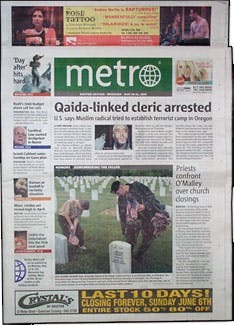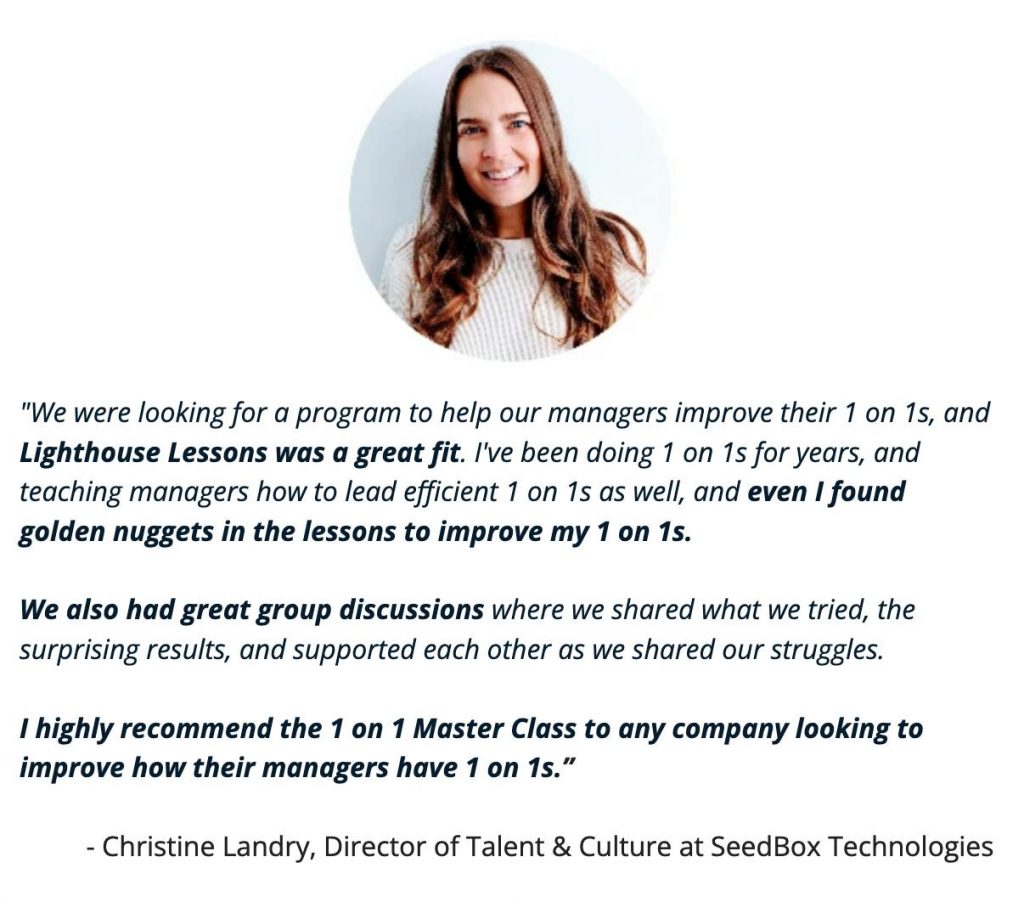What have you been reading lately? I recently finished reading a book written by a friend of mine and I have to say, it's a fun added wrinkle when you think about the author as your friend you've shared meals with and here they are with a book they wrote in their author voice.
In today’s edition, we talk a lot about reading and how it impacts your life. From a quote that is loved by Southwest Airline founder Herb Kelleher, to a report on reading habits of Americans, to how you can build a great reading habit.
We then wrap with a simple, click-to-vote poll we'd love your input on.
Let’s dive in…
Table of contents:
- 🥘 Food for Thought on a favorite quote of Herb Kelleher, founder of Southwest Airlines
- 📰 News & Reports for Managers on reading habits for American Adults
- 👩🏫 Group Training to Make All Your Managers have Excellent, Effective 1 on 1s
🥘 Food for Thought
"The illiterate of the future will not be the person who cannot read. It will be the person who does not know how to learn."
- Alvin Toffler, futurist, best-selling author, and journalist
I'll be honest. I had no idea who Alvin Toffler was when I found this quote. I'm guessing most of you don't know who he is either.
However, this quote is fantastic, and I came across it because I was listening to the Founders podcast episode on Southwest Airline's founder Herb Kelleher.
It turns out this quote was a favorite of Herb's, and he lived what it said.
Kelleher loved learning and reading so much that in one case (described ~43:00 into the podcast) he read a 300 page book about the history of Richmond, Virginia before going there to give a talk. This led to dinner with a prominent member of that community, which happened because he could speak to the history and landmarks in the area.
You never know what doors learning opens, and it can also help in keeping others from closing, which is what I want to talk about today in our Food for Thought.
Knowing how to learn has never been more important.
While I've talked extensively about how AI is making us more productive and effective at our jobs instead of replacing us, I hope you also understand the other important part of such a message: You need to be learning and embracing how to use AI.
No, AI is not going to take all of our jobs.
However, those that don't at least try to use AI to improve their work are missing out.
And if you do sit on the sidelines here, then don't be surprised if people embracing AI surpass you. The data we've gone over in this newsletter shows again and again that they'll get more work done faster, and at a higher average quality.
Being a manager is a great position to be in to learn.
Remember: As a manager, you have a HUGE advantage here. In addition to learning yourself, you can:
- Ask your team how they're using AI to learn from them.
- Delegate research to an eager team member who wants permission to spend time trying AI.
- Check in with your management peers who can do 1+2 as well.
You may be surprised what you find when you put you and your team's mental efforts behind figuring out how AI can help you.
And remember, it doesn't have to be fancy, nor elaborate. As some of you replied in emails to me about how you use AI, it can be simple things like:
- Proof reading an email before you send it
- Generating a message for you to help you frame things in a desired way
- Summarize information in a long essay, email, or other document
- Answering a question more quickly than Google searching and reading a bunch of posts would be
Once you start trying AI, you'll find that you keep having ideas where you think, "I wonder if AI can help do this?" Sometimes it will be a dud, but other times you'll be pleasantly surprised. That's how you go from never using AI to suddenly others are asking YOU for advice.
Learning is about more than AI.
With how the world is advancing today, the jobs of tomorrow are going to be different than the jobs of yesterday. You and your team's best hope for staying relevant is to embrace a learning mindset.
Whether it's learning to use AI in your jobs, building in individual skills gaps, or trying something new none of you have ever done, having the mindset of a learner is one of the most important mindsets you can demonstrate as a leader today.
How are you and your team learning today? How can you make it part of your culture?
📰 News & Reports for Managers on Reading Habits of American Adults
I saw this tweet from my friend Mark C Crowley, and it got me thinking:
No Bueno.
— Mark C. Crowley (@MarkCCrowley) February 22, 2024
Nearly half (46%) of Americans didn't read a single book last year, according to a new Economist/YouGov poll of 1,500 Americans.
If you read more than two books in 2023, you’re in the top half of U.S. adults. #Education #Leadership #GrowthMindset #LeadFromTheHeart pic.twitter.com/3uzUqFYx26
What percentile are YOU in?
For a long time I wasn't a reader.
Then I realized how much time I wasted on the subway (The T) in Boston skimming through this newspaper on my morning and evening commute:

Instead, I started bringing a book with me that I could read on the commute. Once I started doing that, I was shocked to find:
- I could read ~2 books per month (~25 per year) while only reading on my commute
- I rapidly became better at my job by reading useful, relevant books related to my job
- I found myself better warmed up for work by reading on my way to the office
I would literally list this shift in habits as one of the top 5 most impactful decisions in my career. I've now lost count of how many books I've read, but it's north of 300 since that fateful day I decided to start bringing a book with me.
How can you make a reading habit?
I was recently talking to one of my product management coaching clients (something I do in addition to Lighthouse) about him starting this habit.
When I started reading, I was a single guy living in the city with a 20-40 min daily commute each way to the office. He's a post-pandemic PM who works from home and has 3 young kids. How is he going to read?!?
We talked for a while about it, and once he understood the impact it could have on his life, he realized he needed to *make* the time to start reading.
We then brainstormed a few different time slots he would try, keeping whichever worked best:
- First thing in the morning when he wakes up but his kids are still asleep.
- While he eats lunch (which previously was spent checking emails)
- For 20 minutes before going to bed instead of watching an episode of a sitcom after putting his kids to bed
The point is that no matter your situation in life, finding 20 minutes a day to read can be transformative. Yes, it may be a sacrifice of something you enjoy, or something else you want to do, but as the chart Mark shared shows, even reading a few books a year makes you stand out from the crowd.
What's your reading habit? How have you made it work in your busy life?
👩🏫 Group Training for Mastering the Art of 1 on 1s
If you've read this newsletter for long, you know we have Lighthouse Lessons training programs that can teach a group of your managers how to be great leaders, while helping them connect and build bonds with each other.
But did you know we have 8 different programs you can choose from? (Learn about all of them here)
And today I want to talk about one of our most effective programs: The 1 on 1s Master Class
Master your most important meetings each week with The 1 on 1s Master Class
In this 12 lesson program, sent once per week, you will learn how versatile 1 on 1s are, how you can use them to bring out the best in your team and be a great leader.
Here's a breakdown of the 12 lessons:
- How to start every 1 on 1 on the right foot
- The essential foundation for every 1 on 1 relationship
- How to optimize & manage your schedule for great 1 on 1s
- The most important skill for awesome 1 on 1s, and how to master it
- How to use your 1 on 1s to prevent the #1 reason you lose your best people
- The keys to getting buy-in from your team, and how to leverage your 1 on 1s for them
- How to master managing up through better 1 on 1s with your manager
- How to build a coaching engine in your 1 on 1s to improve performance and bring out everyone’s best
- The battle-tested way to turn around an underperformer on your team
- The simple principle that will make every 1 on 1 better for you and your team
- 5 things to NEVER do in your 1 on 1s and how to avoid them
- Manager Q&A: You ask, we answer!
Each week, the lessons focus on one of these topics and shows you *exactly* how you can put that concept into practice with your team. This is then paired with a group discussion agenda that you and your fellow managers can use to deepen your understanding by sharing stories, supporting each other, and seeing how everyone applies the lessons.
If you're looking for a light-weight, actionable, and engaging way to level up how your managers are spending their 1 on 1 time with their teams (or want to get them started from scratch), this is a great program for you to try.
Here's what one leader told us about the 1 on 1 Master Class:

If you're interested in the program, you can learn more and sign up here. Or reply to this email with more details about you and your group.
PS: Training your managers is easier and more affordable than you might think. Learn how it works and sign up here: https://grouplessons.getlighthouse.com/
Sign up to get this newsletter & our latest blog posts straight to your inbox:




